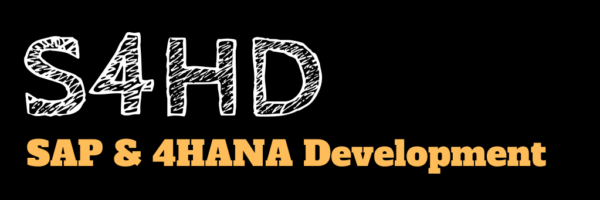What is SAP
Before we get into what is SAP experience let’s start with the basics of what is SAP. Well SAP is both the name of a company and the name of the software they supply. It is one of the biggest companies in the world, the biggest and most complete ERP system in the world and used by many/most of the fortune 500 companies. Despite this many people will have never heard of it other than maybe seeing it on the side of the McLaren F1 team or on various other advertising billboards. That is unless your company uses it and you are familiar with it through work!
That is how I got into it and how many people get into SAP, I can remember receiving a graduate job offer to learn and do SAP development, the first thing I did was search google and jobserve to see what it was and if many companies used it as I had never heard of it. The main reason for this is that in order to familiarise yourself with the system and its development opportunities you ideally need an up and running system, which means working for a company that uses SAP. Having said that it is possible to learn on your own or install local versions of SAP like mini SAP in order to use the various components but having access to a full blown SAP system makes things a lot easier. There is actually some really good cheap/free ways to learn SAP these days.
What is SAP Experience
So what is SAP experience and what are employers after when they request SAP experience. Well, SAP is a huge system which performs an enormous amount of functionality this means that a lot of functionality and options have to be packed into each and every screen, which makes it less intuitive although this is changing with user experience is a top priority for the future of SAP.
At first, the sheer scale can seem like a negative and can put people off SAP from the start. But remember it is this scale and complexity that makes knowledge of SAP or SAP experience valuable to employers. The more you learn the more earn!!! Well, it’s maybe not quite that simple but I often see employers doing everything they can to keep their existing processes and avoid learning the standard SAP one, which is generally created around good practice for the specific industry. This is all good for ABAP developers as companies spend a lot of effort and money creating custom code to make SAP work as they want it too, rather than using the standard.
How to get SAP Experience
Well if you work for a company using or installing SAP this is quite easy and as an employee and someone using SAP, instead of looking at this SAP learning curve as a massive inconvenience and a waste of your time you should see it as an opportunity to gain SAP experience and learn a new skill that is relevant to any company that runs SAP.
But its not just about getting sap experience you need to get the best experience so if you change SAP to replicate your existing processes specific to your company these skills have limited value outside of that company. but if you learn SAP standard processes, this knowledge is more valuable as it can be directly transferred to any other company that is also using SAP.
If you don’t work for a company using SAP it is a little more difficult, you can actually do some SAP training in it or get access to you own SAP IDES system to practice on.
